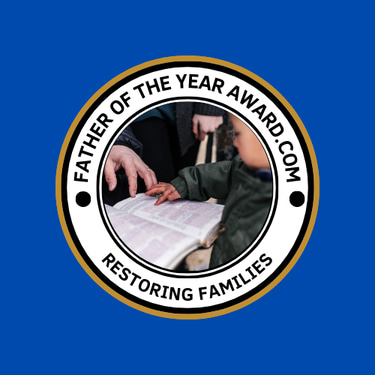Partner With US
America stands at a crucial crossroads, where our collective actions can shape a brighter future for men, women, and youth.
We invite you to partner with us in this important mission. By investing your time to mentor and your resources to help establish impact centers nationwide, you can play a vital role in addressing the fatherless epidemic that contributes to:
Rising crime rates,
Gun violence,
Domestic abuse, and sex trafficking.
Together, we can create safe spaces that empower and uplift our communities. Join us today in making a meaningful difference; your involvement is essential in paving the way toward healing and hope for countless lives.
Click the link below to take that step and become a catalyst for positive change!
To Honor = Hope for Children & Families
In the intricate tapestry of society, the values we uphold take center stage, shaping our identities and influencing the trajectory of future generations. We often hear the maxim: what you honor increases in value, and what you dishonor decreases in value. This principle is particularly resonant when examining the sacred roles of manhood and fatherhood, which have faced relentless scrutiny and devaluation over the decades.
The ripple effects of this dishonoring are stark, tangible, and deeply troubling, especially as we confront the alarming reality that 70% of children in the United States are being raised without their biological fathers in the home. The implications of this phenomenon extend far beyond mere statistics; they carve into the very fabric of our communities. Children raised in fatherless homes often experience higher rates of mental health issues, educational challenges, and social difficulties.
The absence of a father figure can lead to feelings of abandonment and insecurity, contributing to a cycle of hurt that can perpetuate through generations. Herein lies a critical question: what does the dishonoring of fatherhood tell our children about the value of manhood and its foundational role in their lives?
In many cultures, the father has traditionally been seen as a pillar of strength, guidance, and protection. To honor this role means recognizing the importance of a father's influence in shaping a child's worldview. When we allow societal narratives to diminish the value of fatherhood, we diminish the stability and love that fathers can provide. Father's Day advertisements might celebrate the joys of fatherhood, but the societal narrative often undermines it by portraying fathers as incompetent or unnecessary. This dishonoring resonates profoundly and contributes to a culture where disengagement becomes a norm rather than an exception.
This decline in the esteem of fatherhood is not an isolated incident but part of a broader cultural trend that has emerged over the years. As feminism gained momentum in the quest for gender equality, there was indeed a necessary critique of patriarchal structures. However, the backlash was not just against oppressive behaviors; it sometimes extended to the roles of men and fathers, painting them with a broad brush of negativity.
While it is crucial to address toxic masculinity and harmful stereotypes, we must also be careful to preserve and honor the positive, nurturing aspects of manhood and fatherhood. An honorable father fosters emotional intelligence in his children, provides support during difficult times, and models respect and kindness.
The absence of these qualities due to societal devaluation results in a fractured understanding of gender roles, leaving boys without strong male role models and girls without an understanding of healthy relationships with men. The staggering statistic that 70% of children live without their biological fathers points to an urgent need for a paradigm shift.
This situation requires society to reevaluate what honor looks like in the context of fatherhood. It should prompt discussions not just about accountability for absent fathers, but also about the comprehensive support and systems that can encourage involved fathering. Programs aimed at promoting father engagement can lead to improved outcomes in emotional health, educational success, and overall well-being for children.
Mental health issues among children raised without their fathers are startling. Research indicates that father absence is associated with an increased risk of anxiety, depression, and behavioral problems. The love and support that a present father can provide is irreplaceable, serving not only as a source of guidance but also as a crucial anchor in turbulent times. Children thrive in environments where they can recognize their fathers as integral parts of their lives, someone whose presence conveys stability and assurance.
Moreover, the dilution of the value of fatherhood affects our schools and communities. Teachers often face the direct consequences of fatherless homes as they encounter students struggling with emotional and behavioral challenges. The need for support is clear across various domains—schools, healthcare systems, and social services must adapt their strategies to acknowledge and address the unique challenges these children face.
By lifting up fatherhood, we can also elevate manhood itself, creating a more well-rounded perspective of what it means to be a man in today's world. Manhood, when understood in a positive light, involves courage, empathy, responsibility, and a commitment to family. The narrative surrounding manhood needs to celebrate these characteristics, encouraging men to take pride in their paternal roles and enabling them to become active participants in their children's lives. This is not just an individual journey; it is a collective endeavor requiring societal support and recognition of the essential roles that fathers play.
Fortunately, there are signs of hope. An increasing number of programs and movements are dedicated to empowering fathers and emphasizing their critical roles within families and communities. Initiatives that foster positive father-child relationships encourage fathers to engage in their children's lives actively—something that not only benefits the children but also enriches the fathers' lives.
These changes remind us that to honor fatherhood is, in essence, to create a society where children can thrive and grow into well-rounded adults. In conclusion, the principle that what we honor increases in value resonates profoundly when it comes to the vital roles of fatherhood and manhood.
As a society, we must recognize the need to honor fathers and the positive aspects of manhood to counter the alarming statistics and emotional crises affecting our children. By restructuring the narrative surrounding fatherhood, we can replenish the value of fatherhood in our cultural consciousness, leading to healthier families, stronger communities, and ultimately, a brighter future for generations to come.
The word father means source, and the Father of all creation is God. He sent His one and only Son, Jesus to reunite us to Himself. So, as we ponder the value of Fatherhood, it's everything!


